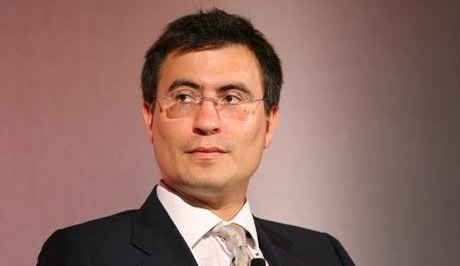



Until recently, London hedge fund manager Chris Hohn was private to the point of reclusiveness, the philanthropic fund he shared with his wife one of the few public things about him. In November, a record-breaking divorce settlement between Chris and Jamie Cooper-Hohn made headlines after a judge ordered Hohn to pay out $531 million of a fortune that had topped out at $1.3 billion previously. The next month, news trickled out that Cooper-Hohn had chosen not to appeal the decision.
The divorce offered details about the couple’s 17-year marriage and a focal point throughout was The Children’s Investment Fund that they founded together and where Cooper-Hohn served as chief executive until 2012. The fund was established more than a decade ago and with its current endowment of $4.6 billion it has fast become one of Britain’s biggest charities. For years, until recently, the money was fed into the charity on a contractual basis from Hohn’s wildly successful hedge fund management firm TCI. Last June, The New York Times characterized the early divorce proceedings as the source of a split between the fund and the foundation and announced that Hohn had decided to end the contractual donation agreement. Leading up to the announcement, TCI had already pumped just under $2 billion into the charity over a ten-year span, easily making Hohn as one of the most generous philanthropists in the U.K.
From the start, TCI channeled 0.5 per cent of its assets each year to CIFF, which last year donated $123.8 million to causes such as child survival and early learning, and gave out another $106.4 million in grants.
According to The Financial Times, Hohn established the donative formula to make himself work harder—although, given his career, it’s unlikely he’s ever lacked motivation. He grew up in humble circumstances, the son of a secretary and a Jamaican-born car mechanic who immigrated to England in 1960. His grades were impressive enough to propel him into Harvard Business School, where he met Cooper-Hohn.
TCI and CIFF shared a similar business approach with a high risk formula at the forefront. TCI, which at one point was the world’s largest activist hedge fund and now manages assets of around $12 billion, has become notorious for its aggressive investment strategy, particularly towards state-held companies undergoing privatization, such as Britain’s Royal Mail. (Hohn's firm has emerged as the Royal Mail's largest private shareholder in recent years.)
Institutional Investor called Hohn specifically “a fearsome corporate agitator” and a German executive who fell prey to his tactics characterized him as “a locust.” CIFF, for its part, states it “invests where the evidence indicates that there is the potential to make the greatest difference. We expect to affect decision-making about resource allocation and policy at the highest levels of influence, and to shape the implementation of large scale programs in key geographies.”
The foundation works with governments and NGOs to maximize the effects of its direct investments in a way they hope will catalyze programs that sustain themselves. In an effort to de-worm schoolchildren in Kenya, CIFF is operating on a scale that aims to treat more than 5 million children annually and establish a self-sustaining operation within the country with the capacity and infrastructure to guarantee permanent control of the problem. The fund has also invested in perinatal mortality, acute childhood malnutrition, and the prevention of mother-to-child transmission of HIV/AIDS in countries such as India, Kenya, Ethiopia, and Zimbabwe. CIFF has also added two other strategic priority areas under the rubric of climate change and energy transformation.
For each of its programs, CIFF has developed a series of success measures to determine the depth of the problem, the scalability of its own approach, and the impact that can be expected.
Even without TCI’s contractual donations to CIFF, discretionary gifts aren’t out of the question. More importantly it seems, the foundation is already large enough to sustain itself as a mainstay. One of the most revealing details about the couple’s recent divorce wasn’t the shocking settlement figure, but the simplicity of their shared philanthropy. “Our family had three pillars at its core: work, philanthropy, and the care and nurturing of our children,” Cooper-Hohn said around the time of the settlement announcement. “I was primarily responsible for two of those — raising four children and, as C.E.O. and founder, creating one of the world’s largest and most impactful foundations.”